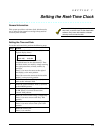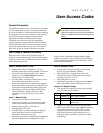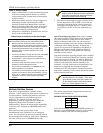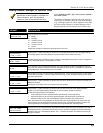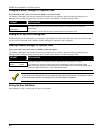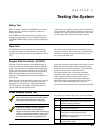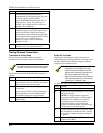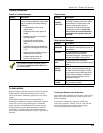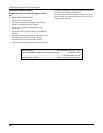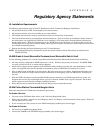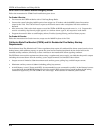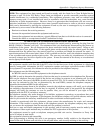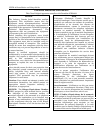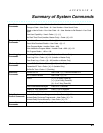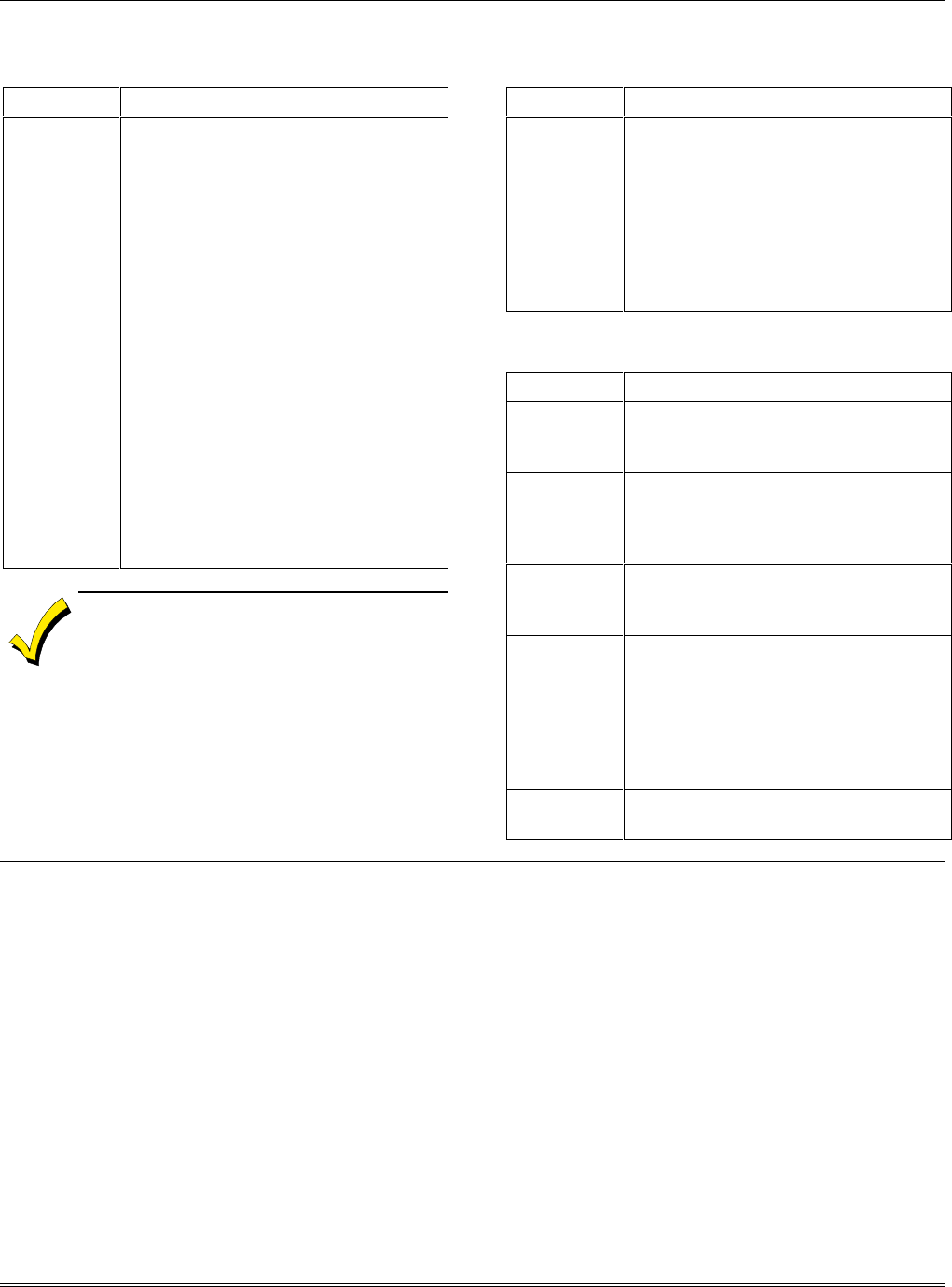
Section 10 – Testing The System
9-3
Trouble Conditions
Check or Trouble Messages
Display Description
CHECK
This indicates that a problem exists on
the zone number displayed. Zone trouble
may be caused by one of the following
conditions:
• A hardwired fire zone is open
(broken wire).
• A Day/Night zone (zone type 5) is
faulted.
• A polling loop zone is not seen by
the control panel.
• A polling loop zone has been
tampered (cover removed on a
4190).
• A wireless zone has not checked in
during the time programmed in field
1✳31.
• A 5800 Series transmitter has been
tampered (cover removed).
• A system trouble exists (RF
receiver, bell output, etc.).
If the problem has been corrected, enter an
OFF sequence (Security Code + OFF) twice
to clear the display.
Power Failure
Display Description
AC LOSS
POWER
LED is off
This indicates that the system is
operating on battery power only. Check
to see that the circuit breaker for the
branch circuit that your system’s
transformer is wired to has not been
accidentally turned off. Instruct the
user to call a service representative
immediately if AC power cannot be
restored.
Other System Messages
Display Description
COMM
FAILURE
This indicates that a failure occurred in
the telephone communication portion of
your system.
LO BAT
This indicates that a low-battery
condition exists in the wireless
transmitter displayed. Pressing any key
silences the audible warning sound.
SYSTEM LO
BAT
This indicates that a low-battery
condition exists with the system’s backup
battery.
RCVR
SETUP
ERROR
This indicates that the system has more
wireless zones programmed than the
wireless receiver can support. If this is
not corrected, none of the zones in the
system will be protected. If additional
wireless zones are desired, use an
appropriate receiver.
MODEM
COMM
This indicates that the control is on-line
with a remote computer.
To the Installer
Regular maintenance and inspection (at least annually)
by the installer and frequent testing by the user are
vital to continuous satisfactory operation of any alarm
system.
The installer should assume the responsibility of
developing and offering a regular maintenance program
to the user as well as acquainting the user with the
proper operation and limitations of the alarm system
and its component parts. Recommendations must be
included for a specific program of frequent testing (at
least weekly) to ensure the system’s proper operation at
all times.
Turning the System over to the User
Fully explain the operation of the system to the user by
going over each of its functions, as well as the User’s
Manual supplied.
In particular, explain the operation of each zone
(entry/exit, perimeter, interior, fire, etc.). Be sure the
user understands how to operate any emergency
feature(s) programmed into the system.



